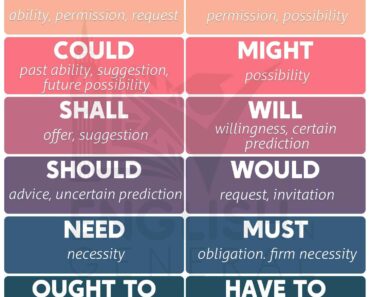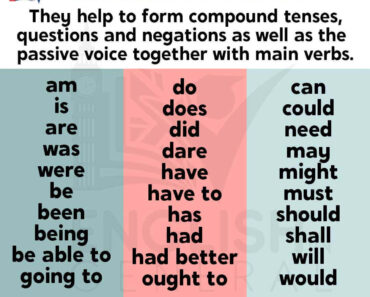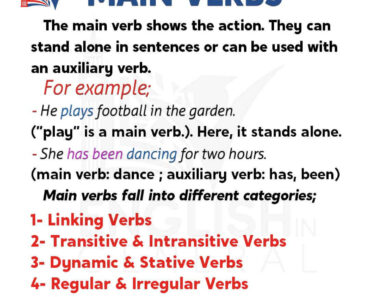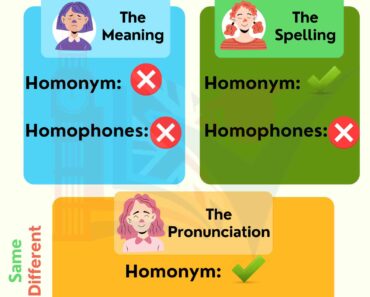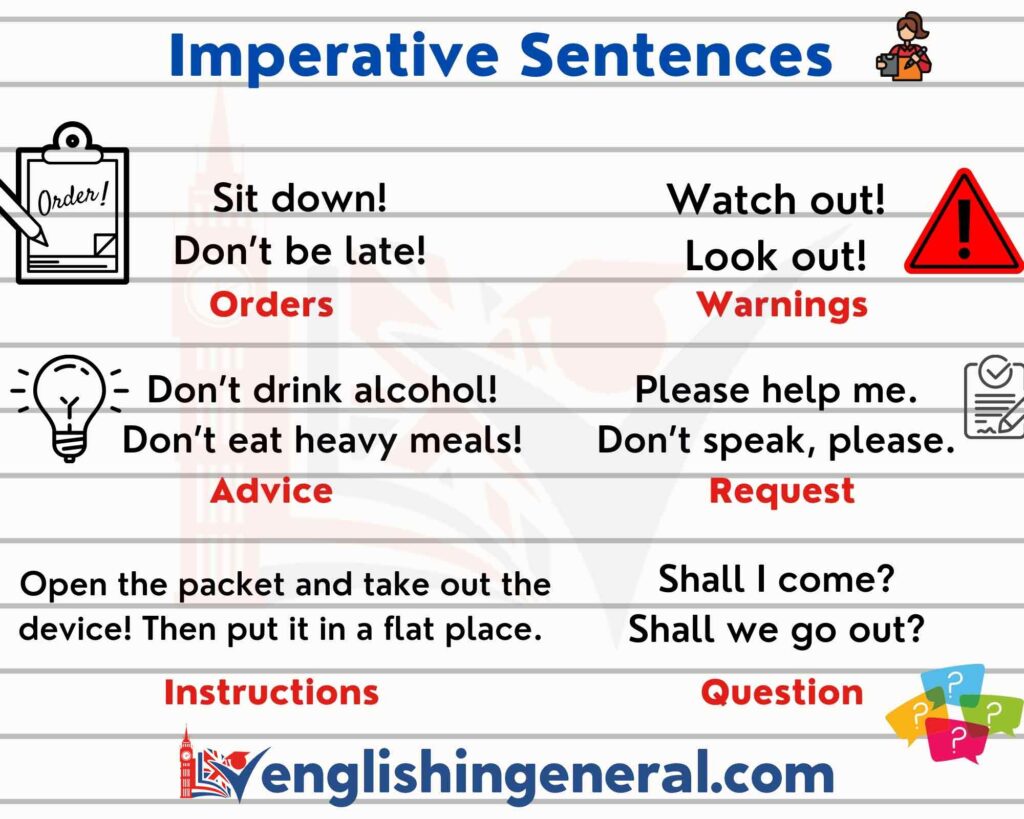
What is an imperative sentence?
Imperative sentence is used to tell people to do something, to order them, to make suggestions and to wish them well. The imperative sentences are expressed in different ways in affirmative and negative forms. A question tag can be added to the end of the imperative sentences. Question attachments that can be used in these sentences are “will you?, won’t you?, would you?, can you?, can’t you?, could you?” sorted as.
After negative imperatives, “will you?” is used. In an imperative sentence, the action can be emphasized by adding “do” (emphatic imperative) to the beginning of the sentence. This usage is more common when making a polite request, complaining, or apologizing. The adverbs of frequency “always” and “never” precede the actions expressing orders. Usually, the subject is not used in the first place; however, the person’s name may be mentioned first to indicate who is being spoken to.
It is also possible to use the passive imperative clause. The “let’s” structure can also fall into the category of imperative sentences. “Let us” stands for “Let’s” which means “Let’s”. “Let’s” is informal; “Let us” is seen informal usage. The “let” structure can be used with the first plural (us) as well as with the object pronoun (object pronoun: me, you, him, her, it, them). “Shall we?” is the question extension of the “Let’s” structure.
Orders
The orders are as described above. Emphasis increases with verbal emphasis on individual words.
Sit down! – “Sit” and “down” are emphasized by one by.
Don’t be late! –
Warnings
Commands are also used to warn of danger.
Watch out!
Look out!
Advice
It is also used for advice.
Don’t drink alcohol!
Don’t eat heavy meals!
Instructions
It is also used when giving directions for clarification or guidance.
Firstly, open the packet and take out the device! Then put it on a flat place.
Making a request
Command sentences can be turned into requests by adding the word “please” to the beginning or end of the imperative sentences.
Sit down, please.
Please help me.
Don’t speak, please.
Please don’t do that again.
NOTE:
If there is a situation to give an order for other people, not the other person, then the verb “Let” is used.
Let him go!
Let them speak!
Let her come!
Let us go!
Question Form
Although imperative sentences are not in question form, we can do this with “Shall”. This structure is the recommendation structure.
Shall I come?
Shall we go out?
Shall they be there!

